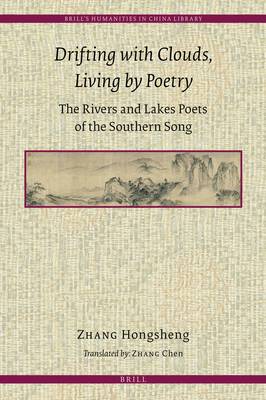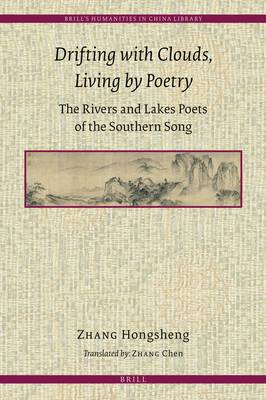
- Afhalen na 1 uur in een winkel met voorraad
- Gratis thuislevering in België vanaf € 30
- Ruim aanbod met 7 miljoen producten
- Afhalen na 1 uur in een winkel met voorraad
- Gratis thuislevering in België vanaf € 30
- Ruim aanbod met 7 miljoen producten
Zoeken
Drifting with Clouds, Living by Poetry
The Rivers and Lakes Poets of the Southern Song
Hongsheng Zhang
€ 375,45
+ 750 punten
Omschrijving
Zhang explores the sociohistorical environment that produced those poets, an era of political intrigues, geopolitical threats, the rise of commodity economy, flourishing popular culture, and glamorous urban life. Poetry was their means of livelihood as they drifted between low positions or as commoners, living by procuring favors from the powerful elite. The sadness and joys of a life in precarity shaped their thematic and stylistic choices, response to contemporary literary trends, and choice of poetic models. They formed a broad social network that straddled the scholar-officials and ordinary townsmen. While their poetry reflects the characteristics and concerns of both classes, there emerged a shared voice distinctly their own that turned the tide of poetry in the 13th century.
Specificaties
Betrokkenen
- Auteur(s):
- Uitgeverij:
Inhoud
- Aantal bladzijden:
- 548
- Taal:
- Engels
- Reeks:
- Reeksnummer:
- nr. 17
Eigenschappen
- Productcode (EAN):
- 9789004522947
- Verschijningsdatum:
- 13/04/2023
- Uitvoering:
- Hardcover
- Formaat:
- Genaaid
- Afmetingen:
- 155 mm x 235 mm

Alleen bij Standaard Boekhandel
+ 750 punten op je klantenkaart van Standaard Boekhandel
Beoordelingen
We publiceren alleen reviews die voldoen aan de voorwaarden voor reviews. Bekijk onze voorwaarden voor reviews.








